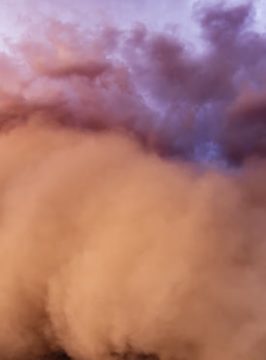Jay Owens in The Guardian:
 Since modernity began, people have complained about airborne dust – but the measures required to control it have come decades or centuries after, if at all. The coalmines and factories that powered Britain’s Industrial Revolution made a capitalist class very rich, while the cost was borne by their workers in their bodies, lungs and blood. The Ethics of Dust was, for me, about human presence made present – about the building rewritten as not only limestone and glass and a wood-beamed roof, or as big abstract nouns like history and tradition and power, but the material traces of millions of bodies, their labours and their livelihoods. It brings the polis, the people, right into the heart of parliament – and it brings a reckoning with the source of Britain’s historical prosperity, too.
Since modernity began, people have complained about airborne dust – but the measures required to control it have come decades or centuries after, if at all. The coalmines and factories that powered Britain’s Industrial Revolution made a capitalist class very rich, while the cost was borne by their workers in their bodies, lungs and blood. The Ethics of Dust was, for me, about human presence made present – about the building rewritten as not only limestone and glass and a wood-beamed roof, or as big abstract nouns like history and tradition and power, but the material traces of millions of bodies, their labours and their livelihoods. It brings the polis, the people, right into the heart of parliament – and it brings a reckoning with the source of Britain’s historical prosperity, too.
Nobody normally thinks about dust, what it might be doing or where it should go: it is so tiny, so totally, absolutely, mundane, that it slips beneath the limits of vision. But if we pay attention, we can see the world within it.
More here.
